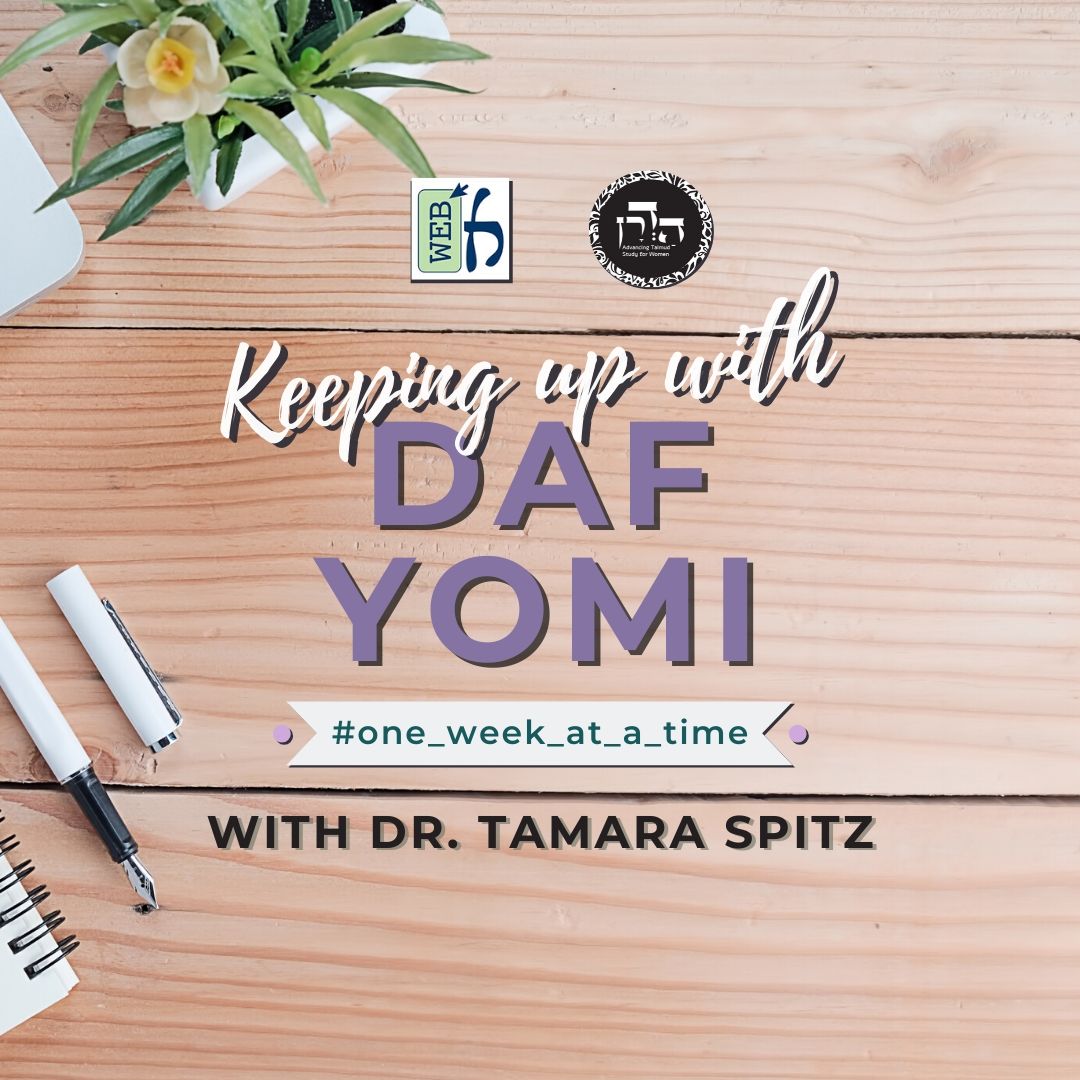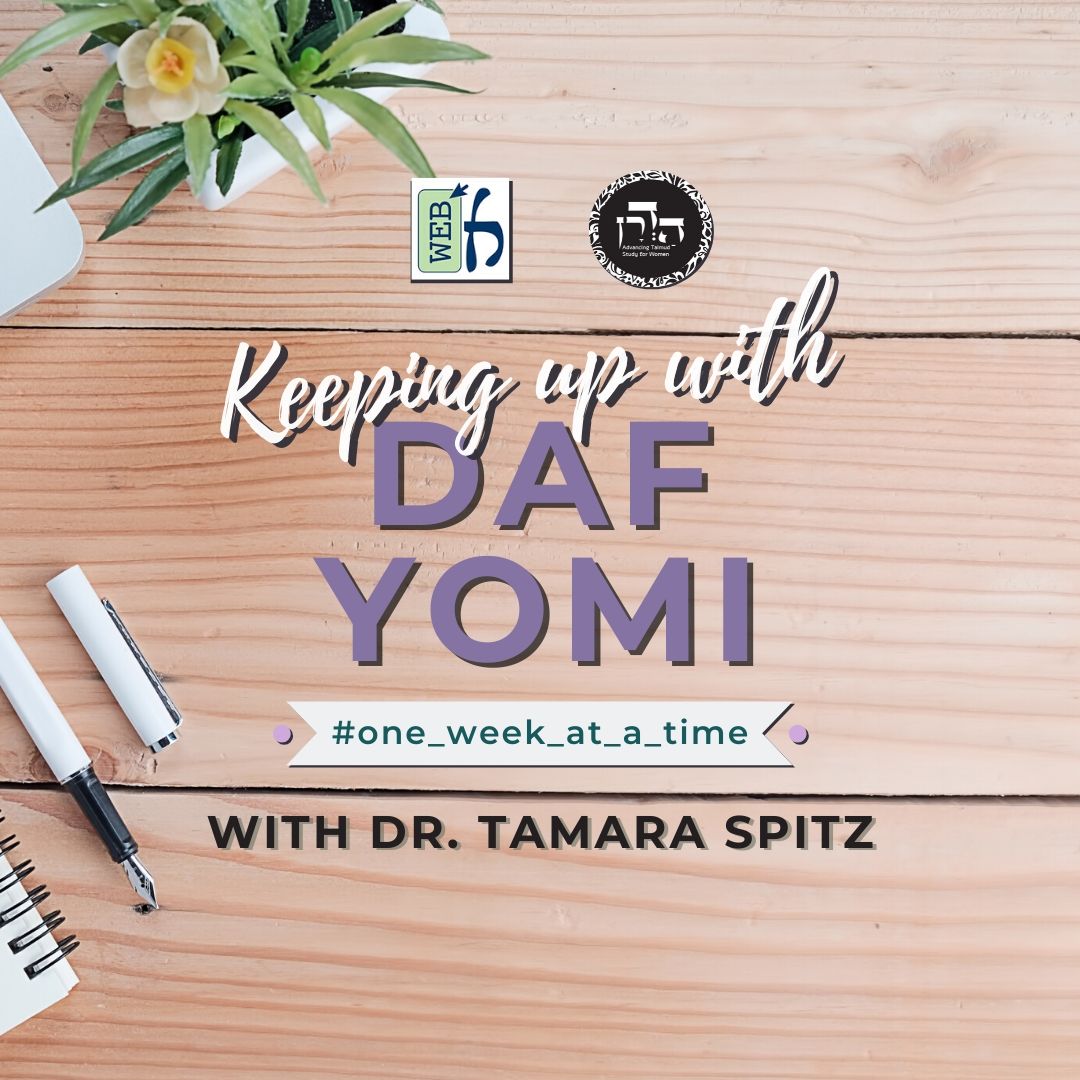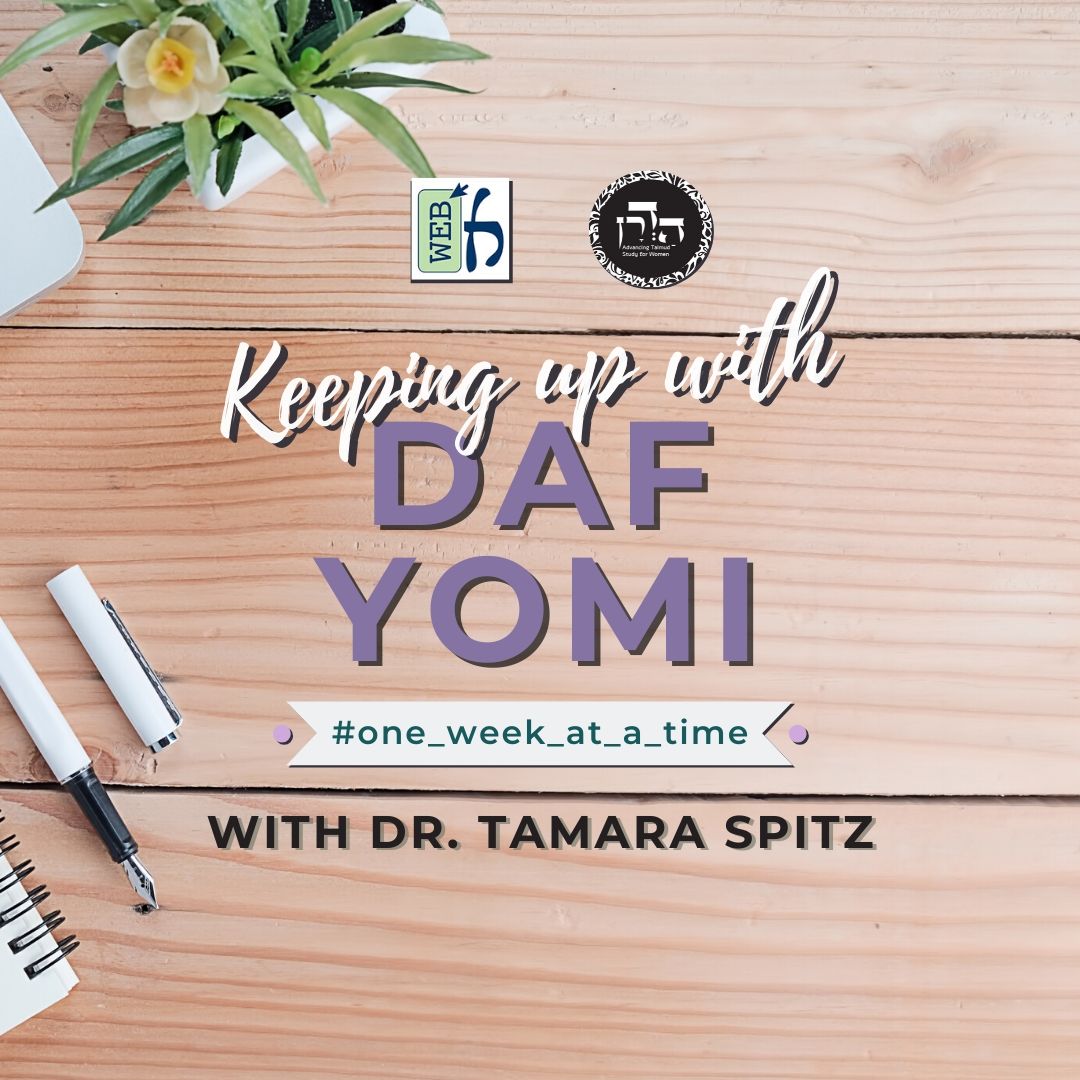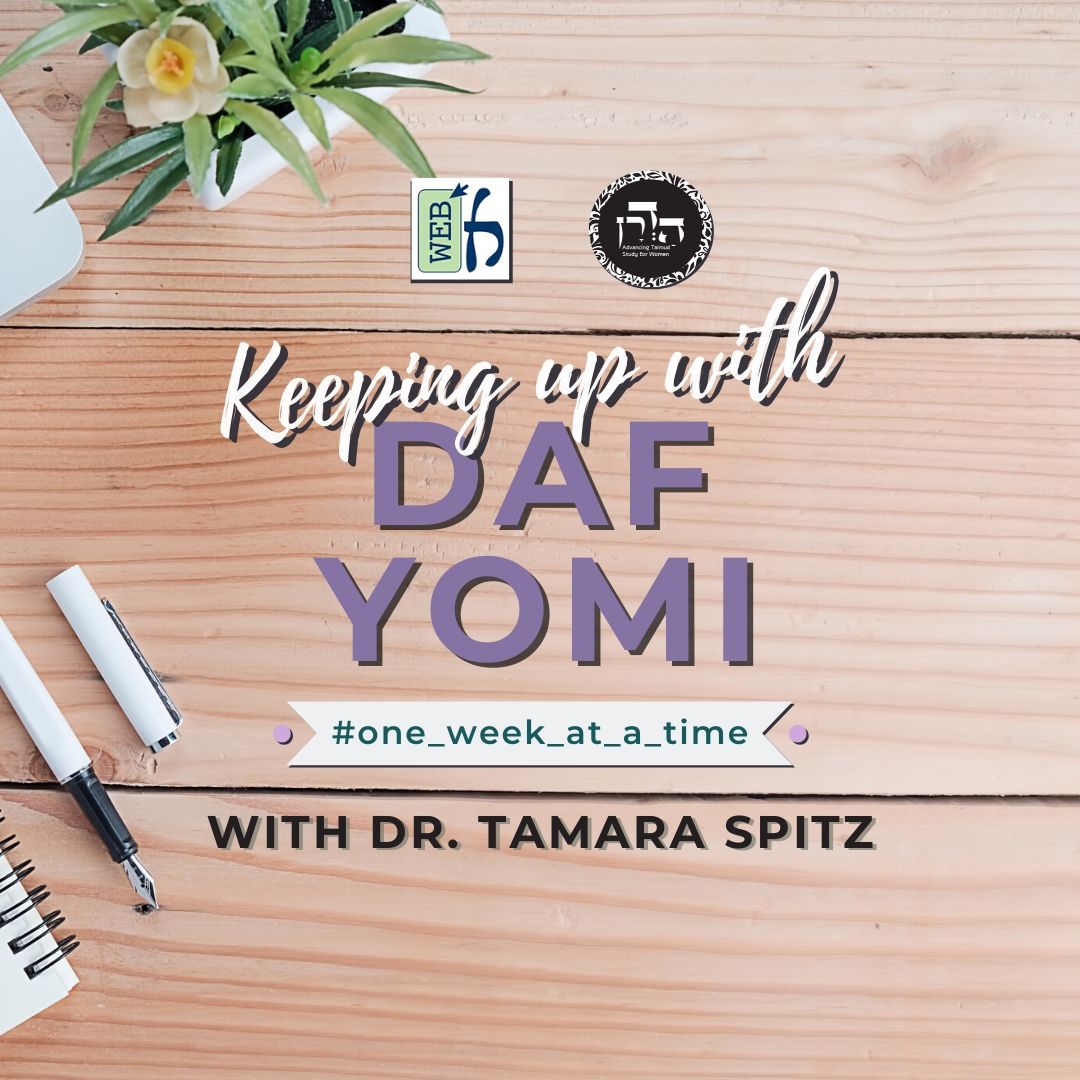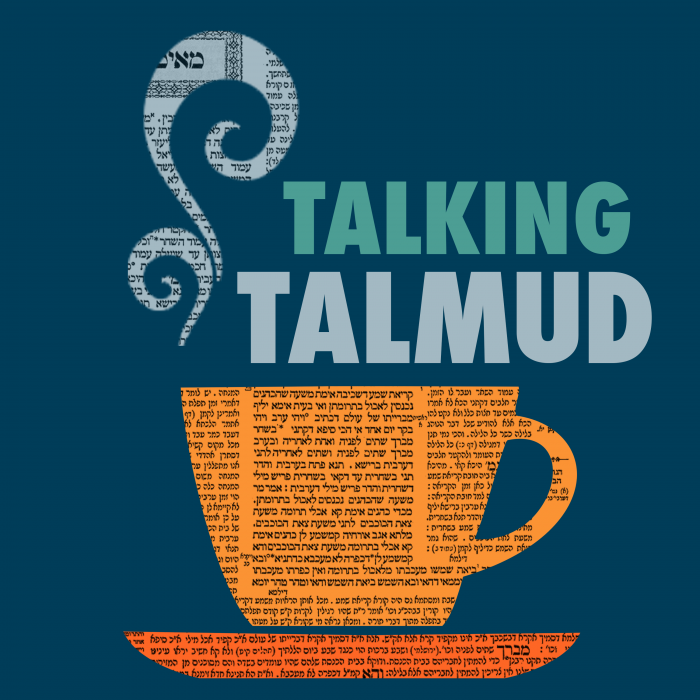Avodah Zarah 2
מַתְנִי׳ לִפְנַי אֵידֵיהֶן שֶׁל גּוֹיִם שְׁלֹשָׁה יָמִים — אָסוּר לָשֵׂאת וְלָתֵת עִמָּהֶם, לְהַשְׁאִילָן וְלִשְׁאוֹל מֵהֶן, לְהַלְווֹתָן וְלִלְווֹת מֵהֶן, לְפוֹרְעָן וְלִפְרוֹעַ מֵהֶן. רַבִּי יְהוּדָה אוֹמֵר: נִפְרָעִין מֵהֶן, מִפְּנֵי שֶׁמֵּיצֵר הוּא לוֹ. אָמְרוּ לוֹ: אַף עַל פִּי שֶׁמֵּיצֵר הוּא עַכְשָׁיו, שָׂמֵחַ הוּא לְאַחַר זְמַן.
MISHNA: On the three days before the festivals of gentiles the following actions are prohibited, as they would bring joy to the gentile, who would subsequently give thanks to his object of idol worship on his festival: It is prohibited to engage in business with them; to lend items to them or to borrow items from them; to lend money to them or to borrow money from them; and to repay debts owed to them or to collect repayment of debts from them. Rabbi Yehuda says: One may collect repayment of debts from them because this causes the gentile distress. The Rabbis said to Rabbi Yehuda: Even though he is distressed now, when he repays the money, he is happy afterward that he is relieved of the debt, and therefore there is concern that he will give thanks to his object of idol worship on his festival.
גְּמָ׳ רַב וּשְׁמוּאֵל, חַד תָּנֵי ״אֵידֵיהֶן״, וְחַד תָּנֵי ״עֵידֵיהֶן״. מַאן דְּתָנֵי ״אֵידֵיהֶן״ לָא מִשְׁתַּבַּשׁ, וּמַאן דְּתָנֵי ״עֵידֵיהֶן״ לָא מִשְׁתַּבַּשׁ.
GEMARA: Rav and Shmuel disagree with regard to the correct version of the text of the mishna. One teaches the term meaning: Their festivals, as eideihen, spelled with an alef as the first letter, and one teaches eideihen with an ayin as the first letter. The Gemara comments: The one who teaches eideihen with an alef is not mistaken, and the one who teaches eideihen with an ayin is not mistaken, as there is support for each version of the term.
מַאן דְּתָנֵי ״אֵידֵיהֶן״ לָא מִשְׁתַּבַּשׁ, דִּכְתִיב: ״כִּי קָרוֹב יוֹם אֵידָם״, וּמַאן דְּתָנֵי ״עֵידֵיהֶן״ לָא מִשְׁתַּבַּשׁ, דִּכְתִיב: ״יִתְּנוּ עֵדֵיהֶם וְיִצְדָּקוּ״.
The Gemara elaborates: The one who teaches eideihen with an alef is not mistaken, as it is written: “For the day of their calamity [eidam] is at hand” (Deuteronomy 32:35), and the future downfall mentioned in the verse is partly due to the festivals of idol worshippers. The term there is spelled with an alef. And likewise, the one who teaches eideihen with an ayin is not mistaken, as it is written: “Let them bring their witnesses [eideihem], that they may be justified” (Isaiah 43:9), i.e., the festivals will serve as witnesses against gentile sinners, proving that they engaged in idol worship. The term there is spelled with an ayin.
וּמַאן דְּתָנֵי ״אֵידֵיהֶן״, מַאי טַעְמָא לָא תָּנֵי ״עֵידֵיהֶן״? אָמַר לָךְ: תְּבָרָא עֲדִיף. וּמַאן דְּתָנֵי ״עֵידֵיהֶן״, מַאי טַעְמָא לָא תָּנֵי ״אֵידֵיהֶן״? אָמַר לָךְ: מַאן קָא גָרֵים לְהוּ תְּבָרָא? עֵדוּת שֶׁהֵעִידוּ בְּעַצְמָן, הִלְכָּךְ עֵדוּת עֲדִיפָא.
The Gemara asks: And according to the one who teaches eideihen with an alef, what is the reason that he did not teach eideihen with an ayin? The Gemara answers: He could have said to you that a term that refers to a calamity is preferable. The Gemara asks: And the one who teaches eideihen with an ayin, what is the reason that he did not teach eideihen with an alef? The Gemara answers: He could have said to you: What causes this calamity to happen to them? It is the testimony that they testified against themselves. Therefore, a term that references testimony is preferable.
וְהַאי ״יִתְּנוּ עֵדֵיהֶם וְיִצְדָּקוּ״ בְּאוּמּוֹת הָעוֹלָם כְּתִיב? הָא בְּיִשְׂרָאֵל כְּתִיב, דְּאָמַר רַבִּי יְהוֹשֻׁעַ בֶּן לֵוִי: כׇּל מִצְוֹת שֶׁיִּשְׂרָאֵל עוֹשִׂין בָּעוֹלָם הַזֶּה בָּאוֹת וּמְעִידוֹת לָהֶם לָעוֹלָם הַבָּא, שֶׁנֶּאֱמַר: ״יִתְּנוּ עֵדֵיהֶם וְיִצְדָּקוּ״ — אֵלּוּ יִשְׂרָאֵל, ״יִשְׁמְעוּ וְיֹאמְרוּ אֱמֶת״ — אֵלּוּ אוּמּוֹת הָעוֹלָם.
The Gemara asks: But is this verse: “Let them bring their witnesses that they may be justified,” written with regard to the nations of the world? Isn’t it written with regard to the Jewish people? As Rabbi Yehoshua ben Levi says: All the mitzvot that the Jews perform in this world will come and bear witness for them in the World-to-Come, as it is stated: “Let them bring their witnesses that they may be justified.” These are the Jews, as their good deeds bear witness for them and demonstrate their righteousness. When the verse states: “And let them hear, and say: It is truth” (Isaiah 43:9), these are the nations of the world, who will admit to the righteousness of the Jews.
אֶלָּא אָמַר רַב הוּנָא בְּרֵיהּ דְּרַב יְהוֹשֻׁעַ: מַאן דְּאָמַר ״עֵידֵיהֶן״ — מֵהָכָא: ״יֹצְרֵי פֶסֶל כֻּלָּם תֹּהוּ וַחֲמוּדֵיהֶם בַּל יוֹעִילוּ וְעֵדֵיהֶם הֵמָּה״.
Rather, Rav Huna, son of Rav Yehoshua, said: The one who says that the correct word is eideihen with an ayin derived this use of the term from here: “They that fashion a graven image are all of them vanity, and their delectable things shall not profit; and their own witnesses [eideihem] see not, nor know” (Isaiah 44:9). This demonstrates that the objects of idol worship will serve as witnesses against their worshippers.
דָּרֵשׁ רַבִּי חֲנִינָא בַּר פָּפָּא, וְאִיתֵּימָא רַבִּי שִׂמְלַאי: לְעָתִיד לָבֹא מֵבִיא הַקָּדוֹשׁ בָּרוּךְ הוּא סֵפֶר תּוֹרָה וּמַנִּיחוֹ בְּחֵיקוֹ, וְאוֹמֵר: לְמִי שֶׁעָסַק בָּהּ יָבֹא וְיִטּוֹל שְׂכָרוֹ.
§ The Gemara cites homiletic interpretations of the verse that was discussed earlier: “All the nations are gathered together, and let the peoples be assembled; who among them can declare this, and announce to us former matters? Let them bring their witnesses, that they may be justified; and let them hear, and say: It is truth” (Isaiah 43:9). Rabbi Ḥanina bar Pappa taught, and some say that it was Rabbi Simlai who taught: In the future, the Holy One, Blessed be He, will bring a Torah scroll and place it in His lap and say: Anyone who engaged in its study should come and take his reward.
מִיָּד מִתְקַבְּצִין וּבָאִין אוּמּוֹת הָעוֹלָם בְּעִרְבּוּבְיָא, שֶׁנֶּאֱמַר: ״כׇּל הַגּוֹיִם נִקְבְּצוּ יַחְדָּו וְגוֹ׳״, אֹמֵר לָהֶם הַקָּדוֹשׁ בָּרוּךְ הוּא: אַל תִּכָּנְסוּ לְפָנַי בְּעִרְבּוּבְיָא, אֶלָּא תִּכָּנֵס כׇּל אוּמָּה וְאוּמָּהּ
Immediately, the nations of the world will gather together and come intermingled with each other, as it is stated: “All the nations are gathered together and let the peoples be assembled.” The Holy One, Blessed be He, will say to them: Do not enter before Me intermingled; rather, let each and every nation enter
וְסוֹפְרֶיהָ, שֶׁנֶּאֱמַר: ״וְיֵאָסְפוּ לְאֻמִּים״, וְאֵין ״לְאוֹם״ אֶלָּא מַלְכוּת, שֶׁנֶּאֱמַר: ״וּלְאֹם מִלְּאֹם יֶאֱמָץ״. וּמִי אִיכָּא עִרְבּוּבְיָא קַמֵּי הַקָּדוֹשׁ בָּרוּךְ הוּא? אֶלָּא כִּי הֵיכִי דְּלָא לִיעַרְבְּבוּ אִינְהוּ [בַּהֲדֵי הֲדָדֵי], דְּלִישְׁמְעוּ מַאי דְּאָמַר לְהוּ.
with their scholars, as it is stated: “And let the peoples [le’umim] be assembled” (Isaiah 43:9); and the term le’om means nothing other than kingdom, as it is stated: “And the one kingdom [ule’om] shall be stronger than the other kingdom [mile’om]” (Genesis 25:23). The Gemara asks: But is it possible for there to be intermingling before the Holy One, Blessed be He, that it should be necessary for each nation to stand and be addressed separately? Rather, the nations are instructed to stand separately so that they will not become intermingled with each other in order that they will each hear what He says to them.
[מִיָּד] נִכְנְסָה לְפָנָיו מַלְכוּת רוֹמִי תְּחִלָּה. מַאי טַעְמָא? מִשּׁוּם דַּחֲשִׁיבָא. וּמְנָלַן דַּחֲשִׁיבָא? דִּכְתִיב: ״וְתֵאכֻל כׇּל אַרְעָא וּתְדוּשִׁנַּהּ וְתַדְּקִינַּהּ״. אָמַר רַבִּי יוֹחָנָן: זוֹ רוֹמִי חַיֶּיבֶת שֶׁטִּבְעָהּ יָצָא בְּכׇל הָעוֹלָם.
Immediately, the Roman Empire enters first before Him. The Gemara asks: What is the reason that the Roman Empire enters first? It is because the Roman Empire is the most important of all of the nations. And from where do we derive that it is the most important? As it is written in the book of Daniel with regard to the fourth empire that will rule over the world: “And it shall devour the whole earth, and shall tread it down, and break it in pieces” (Daniel 7:23), and Rabbi Yoḥanan says: This empire that will devour the earth is the wicked Roman Empire, whose name spread throughout the world.
וּמְנָא לַן דְּמַאן דַּחֲשִׁיב עָיֵיל בְּרֵישָׁא? כִּדְרַב חִסְדָּא, דְּאָמַר רַב חִסְדָּא: מֶלֶךְ וְצִבּוּר — מֶלֶךְ נִכְנָס תְּחִלָּה לְדִין, שֶׁנֶּאֱמַר: ״לַעֲשׂוֹת מִשְׁפַּט עַבְדּוֹ וּמִשְׁפַּט עַמּוֹ יִשְׂרָאֵל וְגוֹ׳״. וְטַעְמָא מַאי? אִיבָּעֵית אֵימָא: לָאו אוֹרַח אַרְעָא לְמֵיתַב מַלְכָּא מֵאַבָּרַאי, וְאִיבָּעֵית אֵימָא: מִקַּמֵּי דְּלִיפּוֹשׁ חֲרוֹן אַף.
The Gemara asks: And from where do we derive that whoever is more important enters first? This is in accordance with a statement of Rav Ḥisda, as Rav Ḥisda says: When a king and a community are brought before God for judgment, the king enters for judgment first, as it is stated: “That He make the judgment of His servant and the judgment of His people Israel, as every day shall require” (I Kings 8:59). And what is the reason that it is important for the king to enter first? If you wish, say that it is not proper conduct for the king to stand outside and wait for the trial of his subjects to end. And if you wish, say instead that the king is brought in first so that he may be judged before God’s anger intensifies due to the sins of the community.
אָמַר לָהֶם הַקָּדוֹשׁ בָּרוּךְ הוּא: בְּמַאי עֲסַקְתֶּם? אוֹמְרִים לְפָנָיו: רִבּוֹנוֹ שֶׁל עוֹלָם, הַרְבֵּה שְׁוָוקִים תִּקַנְּינוּ, הַרְבֵּה מֶרְחֲצָאוֹת עָשִׂינוּ, הַרְבֵּה כֶּסֶף וְזָהָב הִרְבֵּינוּ, וְכוּלָּם לֹא עָשִׂינוּ אֶלָּא בִּשְׁבִיל יִשְׂרָאֵל כְּדֵי שֶׁיִּתְעַסְּקוּ בְּתוֹרָה.
The Gemara returns to its narration of the future judgment. First, the members of the Roman Empire enter. The Holy One, Blessed be He, says to them: With what did you occupy yourselves? They say before Him in response: Master of the Universe, we have established many marketplaces, we have built many bathhouses, and we have increased much silver and gold. And we did all of this only for the sake of the Jewish people, so that they would be free to engage in Torah study.
אָמַר לָהֶם הַקָּדוֹשׁ בָּרוּךְ הוּא: שׁוֹטִים שֶׁבָּעוֹלָם, כׇּל מַה שֶּׁעֲשִׂיתֶם לְצוֹרֶךְ עַצְמְכֶם עֲשִׂיתֶם, תִּקַּנְתֶּם שְׁוָוקִים לְהוֹשִׁיב בָּהֶן זוֹנוֹת, מֶרְחֲצָאוֹת לְעַדֵּן בָּהֶן עַצְמְכֶם, כֶּסֶף וְזָהָב שֶׁלִּי הוּא, שֶׁנֶּאֱמַר: ״לִי הַכֶּסֶף וְלִי הַזָּהָב נְאֻם ה׳ צְבָאוֹת״.
The Holy One, Blessed be He, says to them: Fools of the world! Are you attempting to deceive Me? Everything that you did, you did for your own needs. You established marketplaces to place prostitutes in them; you built bathhouses for your own enjoyment; and as for the silver and gold that you claim to have increased, it is Mine, as it is stated: “Mine is the silver, and Mine the gold, said the Lord of hosts” (Haggai 2:8).
כְּלוּם יֵשׁ בָּכֶם מַגִּיד זֹאת? שֶׁנֶּאֱמַר: ״מִי בָכֶם יַגִּיד זֹאת״, וְאֵין ״זֹאת״ אֶלָּא תּוֹרָה, שֶׁנֶּאֱמַר: ״וְזֹאת הַתּוֹרָה אֲשֶׁר שָׂם מֹשֶׁה״. מִיָּד יָצְאוּ בְּפַחֵי נֶפֶשׁ.
Is there no one among you who can declare that they have studied this Torah? This is the meaning of the continuation of the verse from Isaiah, as it is stated: “Who among them can declare this?” (Isaiah 43:9). And “this” is referring to nothing other than the Torah, as it is stated: “And this is the Torah that Moses set before the children of Israel” (Deuteronomy 4:44), and whoever did not engage in its study does not receive reward. Immediately, the members of the Roman Empire leave disappointed.
יָצָאת מַלְכוּת רוֹמִי, וְנִכְנְסָה מַלְכוּת פָּרַס אַחֲרֶיהָ. מַאי טַעְמָא? דְּהָא חֲשִׁיבָא בָּתְרַהּ. וּמְנָלַן? דִּכְתִיב: ״וַאֲרוּ חֵיוָא אָחֳרִי תִּנְיָנָא דָּמְיָא לְדֹב״, וְתָנֵי רַב יוֹסֵף: אֵלּוּ פַּרְסִיִּים, שֶׁאוֹכְלִין וְשׁוֹתִין כְּדוֹב, וּמְסוּרְבָּלִין [בָּשָׂר] כְּדוֹב, וּמְגַדְּלִין שֵׂעָר כְּדוֹב, וְאֵין לָהֶם מְנוּחָה כְּדוֹב.
The Roman Empire leaves, and the Persian Empire enters after it. What is the reason that the Persian Empire enters second? The reason is that after the Roman Empire it is the next most important. And from where do we derive this? As it is written in Daniel’s vision: “And behold another beast, a second, like a bear” (Daniel 7:5). And Rav Yosef teaches: These are the Persians, who are compared to a bear, as they eat and drink copious amounts as does a bear, and they are fleshy like a bear, and they grow their hair long as does a bear, and they never rest, like a bear, which is constantly on the move from one place to another.
אֹמֵר לָהֶם הַקָּדוֹשׁ בָּרוּךְ הוּא: בְּמַאי עֲסַקְתֶּם? אוֹמְרִים לְפָנָיו: רִבּוֹנוֹ שֶׁל עוֹלָם, הַרְבֵּה גְּשָׁרִים גָּשַׁרְנוּ, הַרְבֵּה כְּרַכִּים כָּבַשְׁנוּ, הַרְבֵּה מִלְחָמוֹת עָשִׂינוּ, וְכוּלָּם לֹא עָשִׂינוּ אֶלָּא בִּשְׁבִיל יִשְׂרָאֵל כְּדֵי שֶׁיִּתְעַסְּקוּ בַּתּוֹרָה.
The Holy One, Blessed be He, says to them: With what did you occupy yourselves? They say before Him in response: Master of the Universe, we have built many bridges, we have conquered many cities, and we have fought many wars. And we did all of this only for the sake of the Jewish people, so that they would engage in Torah study.
אָמַר לָהֶם הַקָּדוֹשׁ בָּרוּךְ הוּא: כׇּל מַה שֶּׁעֲשִׂיתֶם לְצוֹרֶךְ עַצְמְכֶם עֲשִׂיתֶם, תִּקַּנְתֶּם גְּשָׁרִים לִיטּוֹל מֵהֶם מֶכֶס, כְּרַכִּים לַעֲשׂוֹת בָּהֶם אַנְגַּרְיָא, מִלְחָמוֹת אֲנִי עָשִׂיתִי, שֶׁנֶּאֱמַר: ״ה׳ אִישׁ מִלְחָמָה״, כְּלוּם יֵשׁ בָּכֶם מַגִּיד זֹאת? שֶׁנֶּאֱמַר: ״מִי בָכֶם יַגִּיד זֹאת״, וְאֵין ״זֹאת״ אֶלָּא תּוֹרָה, שֶׁנֶּאֱמַר: ״וְזֹאת הַתּוֹרָה אֲשֶׁר שָׂם מֹשֶׁה״, מִיָּד יָצְאוּ מִלְּפָנָיו בְּפַחֵי נֶפֶשׁ.
The Holy One, Blessed be He, says to them: Everything that you did, you did for your own needs. You established bridges to collect taxes from all who pass over them. You conquered cities to use their residents for forced labor [angareya]; and with regard to fighting the wars, I wage wars, and your success is from Me, as it is stated: “The Lord is a man of war” (Exodus 15:3). Is there no one among you who can declare that they have studied this Torah? As it is stated: “Who among them can declare this” (Isaiah 43:9), and “this” is referring to nothing other than the Torah, as it is stated: “And this is the Torah that Moses set” (Deuteronomy 4:44). Immediately, the members of the Persian Empire leave from before Him disappointed.
וְכִי מֵאַחַר דַּחֲזָית מַלְכוּת פָּרַס לְמַלְכוּת רוֹמִי דְּלָא מַהְנְיָא וְלָא מִידֵּי, מַאי טַעְמָא עָיְילָא? אָמְרִי: אִינְהוּ סָתְרִי בֵּית הַמִּקְדָּשׁ וַאֲנַן בָּנִינַן, וְכֵן לְכׇל אוּמָּה וְאוּמַהּ.
The Gemara asks: But once the Persian Empire sees that everything said by the Roman Empire is completely ineffective, what is the reason that they come forward? The Gemara answers: They believe that their claims will be more effective, as they say: The Romans destroyed the Second Temple, and we had built it, as the Second Temple was constructed under the auspices and with the encouragement of Cyrus, the king of Persia. The Gemara adds: And likewise, a similar exchange occurred with each and every nation.
וְכִי מֵאַחַר דַּחֲזוֹ לְקַמָּאֵי דְּלָא מַהֲנֵי וְלָא מִידֵּי, מַאי טַעְמָא עָיְילִי? סָבְרִי: הָנָךְ אִישְׁתַּעְבַּדוּ בְּהוּ בְּיִשְׂרָאֵל, וַאֲנַן לָא שַׁעְבַּדְנוּ בְּיִשְׂרָאֵל. מַאי שְׁנָא הָנֵי דַּחֲשִׁיבִי, וּמַאי שְׁנָא הָנֵי דְּלָא חֲשִׁיבִי לְהוּ? מִשּׁוּם דְּהָנָךְ מָשְׁכִי בְּמַלְכוּתַיְיהוּ עַד דְּאָתֵי מְשִׁיחָא.
The Gemara asks: But once the other nations see that everything said by the first ones, Rome and Persia, is completely ineffective, what is the reason that they come forward? The Gemara answers that they think: Those Empires subjugated the Jewish people, but we did not subjugate the Jewish people. The Gemara further asks: What is different about these, Rome and Persia, which were singled out explicitly, and what is different about those other empires that come afterward, which were not singled out and mentioned by name? It is because with regard to these, Rome and Persia, their kingship extends until the coming of the Messiah.
אוֹמְרִים לְפָנָיו: רִבּוֹנוֹ שֶׁל עוֹלָם, כְּלוּם נָתַתָּ לָנוּ וְלֹא קִיבַּלְנוּהָ? וּמִי מָצֵי לְמֵימַר הָכִי? וְהָכְתִיב: ״וַיֹּאמַר ה׳ מִסִּינַי בָּא וְזָרַח מִשֵּׂעִיר לָמוֹ״, וּכְתִיב: ״אֱלוֹהַּ מִתֵּימָן יָבוֹא וְגוֹ׳״. מַאי בָּעֵי בְּשֵׂעִיר, וּמַאי בָּעֵי בְּפָארָן?
The nations will say before God: Master of the Universe, did You give us the Torah and we did not accept it? Since we never received the Torah, why are we being judged for not fulfilling its mitzvot? The Gemara asks: And can one say that they were never offered the Torah? But isn’t it written in the description of the giving of the Torah: “And he said: The Lord came from Sinai, and rose from Seir unto them” (Deuteronomy 33:2), and it is written: “God comes from Teman, and the Holy One from mount Paran” (Habakkuk 3:3). And the Sages asked: What did God require in Seir and what did He require in Paran? The Torah was not given in those locations.
אָמַר רַבִּי יוֹחָנָן: מְלַמֵּד שֶׁהֶחְזִירָהּ הַקָּדוֹשׁ בָּרוּךְ הוּא עַל כׇּל אוּמָּה וְלָשׁוֹן, וְלֹא קִבְּלוּהָ, עַד שֶׁבָּא אֵצֶל יִשְׂרָאֵל וְקִבְּלוּהָ!
And Rabbi Yoḥanan says: This teaches that the Holy One, Blessed be He, took the Torah around to every nation and those who speak every language, such as the Edomites in Seir and the Ishmaelites in Paran, but they did not accept it, until He came to the Jewish people and they accepted it. If the other nations all rejected the Torah, how can they excuse themselves by claiming that it was never offered to them?
אֶלָּא הָכִי אָמְרִי: כְּלוּם קִיבַּלְנוּהָ וְלֹא קִיַּימְנוּהָ? וְעַל דָּא תְּבָרְתְּהוֹן, אַמַּאי לָא קַבֵּלְתּוּהָ? אֶלָּא כָּךְ אוֹמְרִים לְפָנָיו: רִבּוֹנוֹ שֶׁל עוֹלָם, כְּלוּם כָּפִיתָ עָלֵינוּ הַר כְּגִיגִית וְלֹא קִבַּלְנוּהָ, כְּמוֹ שֶׁעָשִׂיתָ לְיִשְׂרָאֵל?
Rather, this is what they say: Did we accept the Torah and then not fulfill its mitzvot? The Gemara asks: But this itself serves as the refutation of their own claim, as one can respond: Why didn’t you accept it? Rather, this is what the nations of the world say before Him: Master of the Universe, did You overturn the mountain above us like a basin, and we still did not accept the Torah, as You did for the Jewish people?
דִּכְתִיב: ״וַיִּתְיַצְּבוּ בְּתַחְתִּית הָהָר״, וְאָמַר רַב דִּימִי בַּר חָמָא: מְלַמֵּד שֶׁכָּפָה הַקָּדוֹשׁ בָּרוּךְ הוּא הַר כְּגִיגִית עַל יִשְׂרָאֵל, וְאָמַר לָהֶם: אִם אַתֶּם מְקַבְּלִין אֶת הַתּוֹרָה — מוּטָב, וְאִם לָאו — שָׁם תְּהֵא קְבוּרַתְכֶם!
The Gemara provides the background for this claim: As it is written: “And they stood at the nether part of the mount” (Exodus 19:17), and Rav Dimi bar Ḥama says: The verse teaches that the Holy One, Blessed be He, overturned the mountain, i.e., Mount Sinai, above the Jews like a basin, and He said to them: If you accept the Torah, excellent, and if not, there, under the mountain, will be your burial. The nations of the world will claim that they too could have been coerced to accept the Torah.
מִיָּד אוֹמֵר לָהֶם הַקָּדוֹשׁ בָּרוּךְ הוּא: הָרִאשׁוֹנוֹת יַשְׁמִיעוּנוּ, שֶׁנֶּאֱמַר: ״וְרִאשׁוֹנוֹת יַשְׁמִיעֻנוּ״, שֶׁבַע מִצְוֹת שֶׁקִּיבַּלְתֶּם הֵיכָן קִיַּימְתֶּם?
Immediately, the Holy One, Blessed be He, says to them: The first mitzvot will let us hear the truth, as it is stated in the continuation of the same verse under discussion: “And announce to us the first things” (Isaiah 43:9). With regard to the seven Noahide mitzvot that preceded the giving of the Torah that even you accepted, where is the proof that you fulfilled them?
וּמְנָלַן דְּלֹא קִיְּימוּם? דְּתָנֵי רַב יוֹסֵף: ״עָמַד וַיְמֹדֶד אֶרֶץ רָאָה וַיַּתֵּר גּוֹיִם״, מַאי רָאָה? רָאָה שֶׁבַע מִצְוֹת שֶׁקִּבְּלוּ עֲלֵיהֶן בְּנֵי נֹחַ וְלֹא קִיְּימוּם, כֵּיוָן שֶׁלֹּא קִיְּימוּם עָמַד וְהִתִּירָן לָהֶן. אִיתְּגוֹרֵי אִיתְּגוּר? אִם כֵּן מָצִינוּ חוֹטֵא נִשְׂכָּר!
The Gemara asks: And from where do we derive that they did not fulfill them? As Rav Yosef teaches in explanation of the verse: “He stands, and shakes the earth, He sees, and makes the nations tremble [vayater]” (Habakkuk 3:6): What did God see? He saw the seven mitzvot that the descendants of Noah accepted upon themselves, and He saw that they did not fulfill them. Since they did not fulfill them, He arose and nullified for them [vehitiran] the command to heed these mitzvot. The Gemara asks: Do they gain from not obeying, as they are now released from the obligation to fulfill these mitzvot? If so, we find that a sinner profits from his transgression.
אָמַר מָר בְּרֵיהּ דְּרָבִינָא:
Mar, son of Ravina, said:




